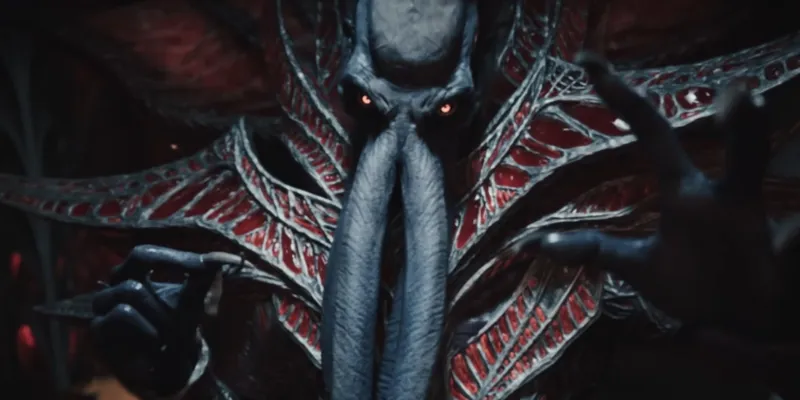Baldur's Gate 3, the widely praised video game, has significantly boosted the popularity of Dungeons & Dragons, especially following a challenging year in 2023. The game's focus on mind flayers has brought to light a monster that could inspire the revival of a long-forgotten D&D class.
Mind flayers, the central theme of Baldur's Gate 3, are a peculiar species of alien known for their tentacles, brain-consuming habits, thralls, and psychic powers. These psionic abilities, different from magic, involve skills like telekinesis and telepathy, all powered by sheer brain strength. The mind flayer's arsenal includes feats like levitation, powerful psychic attacks, and the ability to control another being's mind.
Why Baldur's Gate 3 Should Influence the Reintroduction of D&D's Mystic Class
With Baldur's Gate 3 showcasing mind flayers and their capabilities, along with offering players the chance to acquire these illithid powers, there is a prime opportunity for Wizards of the Coast to reintroduce psionics into D&D. While some character options possess psionic elements, such as the Great Old One subclass for warlocks found in both D&D 5e and Baldur's Gate 3, a complete psionic class is missing in the current 5th edition.
The Mystic class, designed to fill this void, never advanced beyond playtesting due to its intricate mechanics. However, with the upcoming 2024 rules revision, there is a golden chance for D&D to leverage the foundation laid by Baldur's Gate 3's psionics.
Unearthing the Mystic and Its Roots
The Mystic class originated from D&D's Unearthed Arcana, a collection of trial materials released by WOTC for community input. Introduced in 2017, this class was one of the rare additions to 5e's classes, with only the Artificer becoming an official new class post the 2014 edition. The Mystic focused on psionic abilities, presenting a highly intricate class with numerous components. The Unearthed Arcana document spanned 28 pages, brimming with decision points and a complex 'Psi Point' system for tracking resources.
Despite some players enjoying the class, it never transitioned to an official WOTC publication. In a 2020 Unearthed Arcana release, WOTC declared the end of development for D&D 5e's Mystic. Nevertheless, the concept of a class centered on psionic powers remains popular within the third-party market, with various offerings available. Notably, MCDM, a prominent third-party publisher for 5e, introduced the Talent class, which approaches psionics from a pulp sci-fi angle, akin to Jean Grey's abilities rather than cosmic horror.
Baldur's Gate 3 Advocates for a Psionic Class
While existing subclasses like Great Old One and Aberrant Mind (a sorcerer subclass absent from Baldur's Gate 3) cater to certain tastes, a full-fledged psionic class might benefit from a more mystical essence. Fortunately, Baldur's Gate 3 sets the stage for this through illithid powers. By assimilating mind flayer parasites, players can acquire minor psionic capabilities encompassing passive traits and active abilities.
These abilities operate akin to the warlock's Eldritch Invocations but with an added risk-reward aspect, like Psionic Overload, where the player suffers damage in return for more potent attacks. Leveraging the warlock's popularity, Baldur's Gate 3's illithid power system could serve as a solid base for a psionic class. While requiring some additional complexity to distinguish between spellcasting and psionics, a new psionic class with fewer intricate choices and a streamlined power system is entirely feasible.

